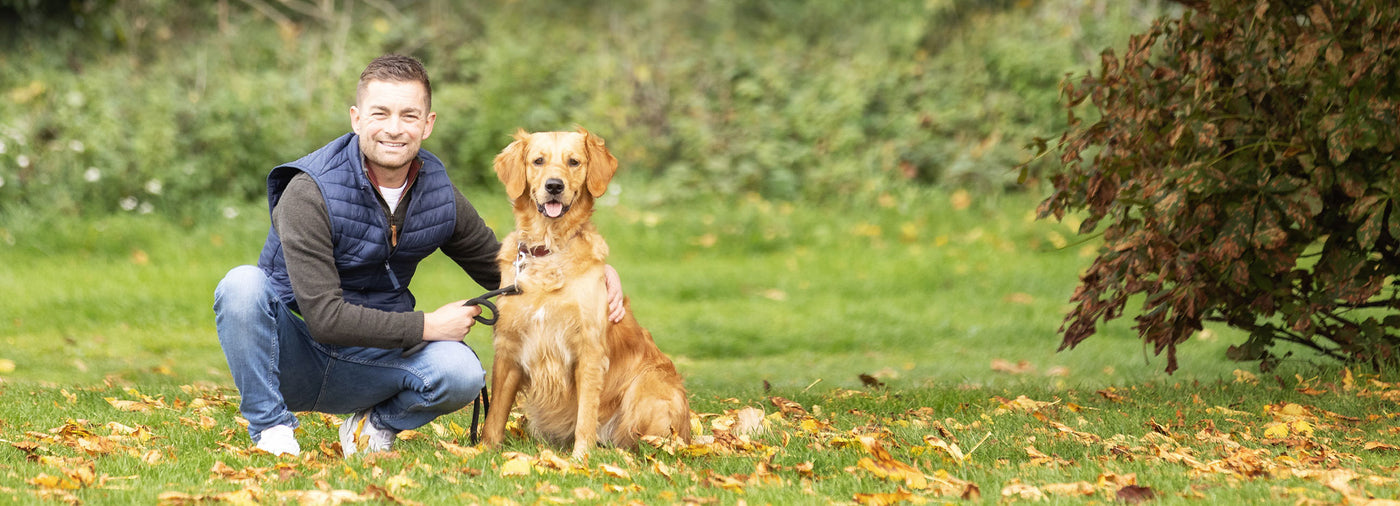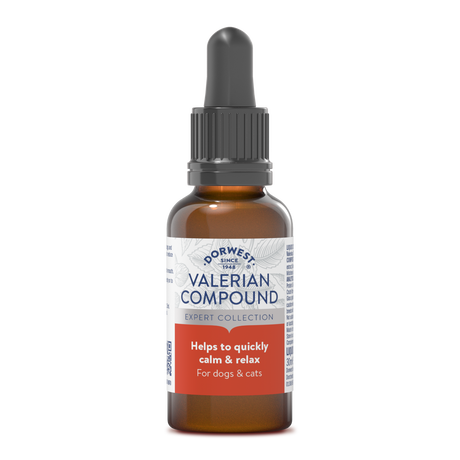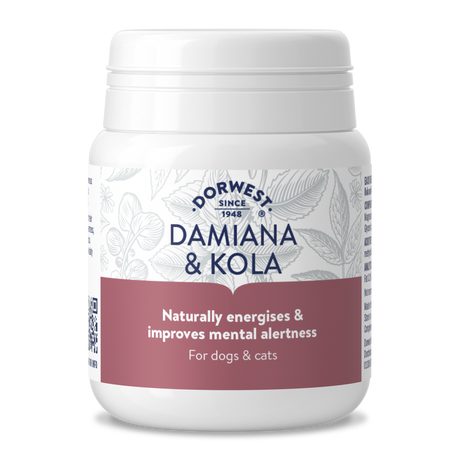We’re delighted to announce that we’re partnering with accredited dog behaviourist and trainer Adem Fehmi, aka ‘Dogtor Adem’, for this year’s annual calming campaign during fireworks season.

Adem has loved all things ‘dog’ since he was a young boy. This led to gaining a degree in Animal Science and becoming a Canine Behaviourist and Trainer. Whilst much of what he knows about dogs has come from observing and working with them for many years, he now has over 20 years’ experience as a Behaviourist and Trainer. Adem is CFBA (Canine & Feline Behaviour Association) accredited, a ‘Kids Around Dogs Approved’ professional, and also an Assessor and Volunteer for Pets as Therapy.
Read below for his advice on spotting anxiety and how to help keep your dog calm when the bangs start.
What are the most common signs of stress and anxiety to look out for in dogs?
“There are many signs that indicate that your dog is feeling anxious, including:
- Panting
- Salivating
- Yawning
- Whale eye (where you can see the whites of your dog’s eyes)
- Pacing
- Cowering
- Whining
- Shaking
- Chewing or destroying of items
- Seeming agitated in general
- Defecating or urinating
- An inability to settle
A dog may also:
- Become withdrawn
- Become hyper attached
- Become reactive
It is important to observe your dog carefully so that you can recognise any changes in their behaviour and take action where needed.”
Why is fireworks season a tough time for pets, and what steps can owners take to help their dogs feel safe and calm?
“Our dogs have inherited extremely well-developed senses from their ancestors to help alert them to danger to keep them safe. Wild canids such as wolves, foxes or wild dogs rely on these senses to avoid danger, including natural hazards like thunderstorms, volcanic eruptions, migrating herds, and avalanches. Loud noises and flashes of unpredictable fireworks can therefore feel threatening, triggering their flight or fight response and causing stress and anxiety.
Unlike natural hazards, fireworks come with no warning at all. Imagine sleeping soundly in your living room and suddenly being awoken by multiple loud bangs and flashes of light that seem to have come out of nowhere — it’s no wonder so many dogs find fireworks season stressful.
Whether your dog already shows signs of stress or currently seems relaxed, it is important to be proactive. Training before fireworks season can help prevent or manage behavioural issues. Remember that dogs can show no signs of fear one year and this can change the next — just one bad experience can trigger a debilitating phobia. Life changes such as moving house, entering a new life stage, losing a pet or family member, or developing another phobia can all impact how they cope during fireworks.”
Adem’s top tips for success this fireworks season:
-
Be proactive with training:
“It is always better to take the prevention rather than cure approach where possible. If possible, build up your dog’s social exposure before fireworks season. Use technology like YouTube videos or Alexa to play firework noises quietly in the background. Start with very low volume and no visuals, then gradually increase the sound and add the sight of fireworks on a TV screen. Reward your dog for calm behaviour — you want them to almost not notice and to positively reinforce that ‘not noticing’.”
-
Use products that support your dog’s nervous system:
Herbal supplements like Dorwest’s Scullcap & Valerian tablets can help support your dog during anxious periods. Start at least three weeks before fireworks. If your dog is likely to react, use them alongside behaviour work to keep them calm and focussed. For extra support on loud nights, add Dorwest’s Valerian Compound.
-
Check dates of local firework displays:
If you know that your dog has an adverse reaction and you cannot avoid the sight and noise from neighbours or local displays, it may be better for your dog to stay elsewhere with a friend.
-
Exercise your dog early in the day:
A well exercised dog is more likely to rest and settle than a dog with unspent energy that can turn into anxious energy. If you also exercise early, you are less likely to encounter a firework being let off whilst you are out, which could worry your dog or even cause them to develop a phobia.
-
Remain calm:
Avoid making a big fuss about noise as this can unintentionally send a signal to your dog that there is something to be afraid of. Model the desired behaviour by remaining calm. We want our dogs to feel that we are there for them, while also showing them there is nothing to fear.
-
Set up a safe and inviting area:
Close curtains or blinds and keep your dog as far away as possible from any fireworks sights and sounds.
-
Play calming music:
This can soften the sound of any fireworks that may be let off. I like to play Classic FM loudly until I am sure that the fireworks have finished.
-
Distract your dog:
Play games with them or offer a long-lasting chew or fun food dispensing toy. Begin the distraction before fireworks can be heard or seen — if your dog is already fearful, they may not accept a chew or toy, or may be too anxious to play.”
Top tip for anyone seeking behavioural support for their dog:
“Firstly, ensure you are employing a Behaviourist rather than a Trainer and that they hold a relevant Behaviourist qualification. Look for experience with your dog’s specific issue and breed, check reviews and ask for recommendations from vets or other owners. Most importantly, make sure they use positive reinforcement methods rooted in modern science.”
Why do calming supplements work so well alongside training?
“Alongside behaviour training, calming herbal supplements can help your dog to stay relaxed and focussed by supporting their nervous system. Over time they can also assist with helping to create positive associations with situations that may otherwise have induced stress or anxiety.
I have loved Dorwest for several years now, especially since using some of the products to help one of my previous dogs with itchy paws! As a multi award winning brand, Dorwest shares my passion for helping dogs to live their best, happiest, and healthiest lives possible.”
For more advice follow us on social media @dorwest to see Adem’s latest tips on keeping your pets calm this fireworks season. Adem is the owner and founder of DogEase, a dog training and behaviour business based in Hertfordshire, where he helps owners better understand and support their dogs. Plus you can also follow him on Instagram at @dogtoradem for more expert guidance.
























